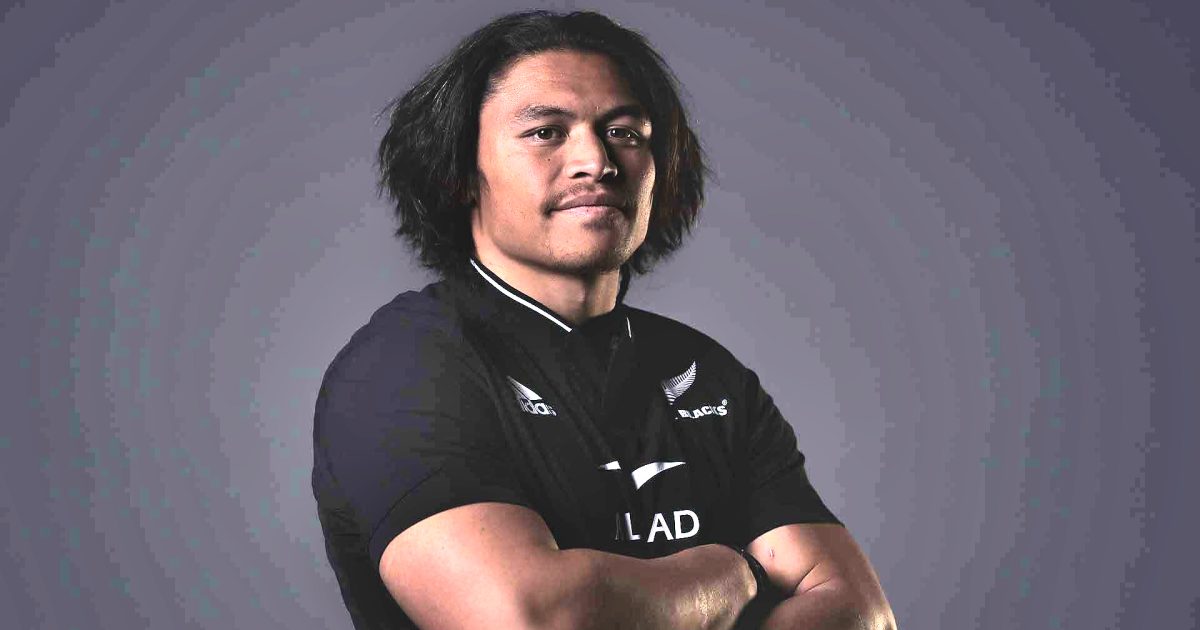All Blacks star Caleb Clarke confirms playing future amid speculation of NRL switch

All Blacks star Caleb Clarke has confirmed he will remain in rugby union despite being the subject of a cross-code rumours earlier this year.
It was announced on Monday that Clarke has signed a two-year contract extension with New Zealand Rugby [NZR] and the Blues in a deal that will keep him at both organisations until 2024.
Confirmation of Clarke’s playing future comes two months after he signalled a desire to play rugby league following next year’s World Cup in France.
“That’s definitely one thing that I’d love to do,” the barnstorming 23-year-old wing told AAP in April about the prospect of playing in the NRL.
“I’m a big Rabbitohs supporter and I talk to the Rabbitohs boys every now and then.
“So yeah, I’d love to and I don’t know when but it’ll definitely be something that I want to tick off as a life goal.”
Those aspirations have been put on hold for the time being, though, as Clarke will remain a rugby union player for at least the next two years.
A five-test international who took the world by storm when he starred in his maiden All Blacks campaign two years ago, Clarke has established himself as a key figure in the New Zealand rugby landscape.
Formerly a New Zealand Schools representative and 2016 national schoolboy champion with Mount Albert Grammar School, Clarke was an NPC title-winner with Auckland in 2018, the same year in which he made his debut for the Blues.
He was also part of the New Zealand U20 side that claimed the World Rugby U20 Championship the year beforehand, and helped the All Blacks Sevens claim the truncated World Sevens Series title for the 2019-20 season.
While he didn’t feature for the Blues in last year’s Super Rugby Trans-Tasman success as he unsuccessfully attempted to play for the All Blacks Sevens at the Tokyo Olympics, Clarke has made a strong impression with the Auckland-based franchise.
After initially breaking onto the scene with a standout showing at the 2018 Brisbane Tens, which the Blues won, Clarke has gone on to amass 32 caps in his five season with the Super Rugby Pacific side, scoring 12 tries in the process.
His performances for the club earned him a test debut in 2020, and Blues head coach Leon MacDonald hopes to see more of the same from Clarke over the next two years.
“Caleb possess qualities that are so exciting in the modern young player,” MacDonald said in a statement released on Monday.
“He is a superb athlete, a trained sprinter who possesses speed and power and outstanding ball-skills. Best of all, he is an outstanding young man, dedicated athlete and good person.”
Clarke, who is currently part of the All Blacks squad preparing to face Ireland at Eden Park on Saturday, added that it was an easy decision to re-sign with the Blues in a deal that sees him re-commit to Auckland at provincial level as well.
“I would not want to be anywhere else than to be at the Blues. We have a fantastic environment and the boys work so hard together and have a lot of fun at the same time,” he said.











































































